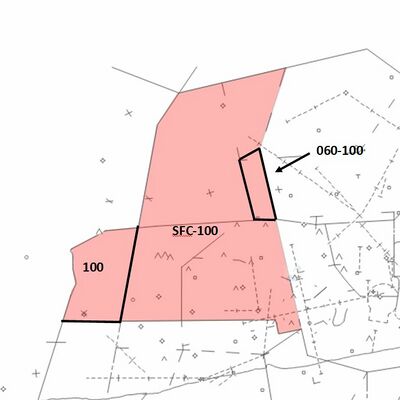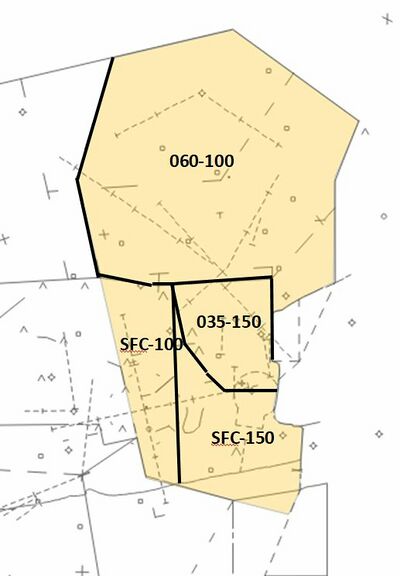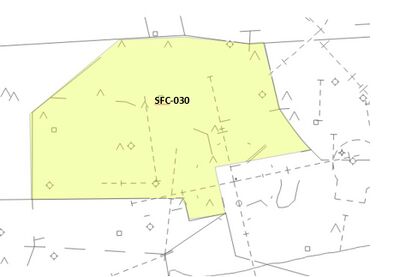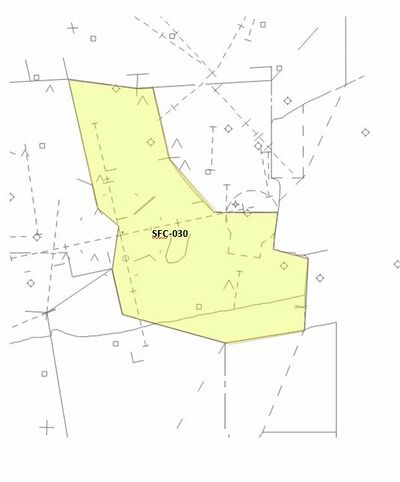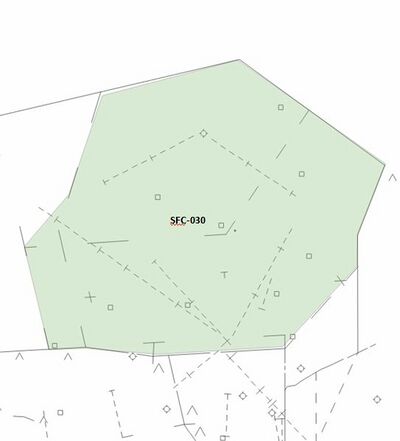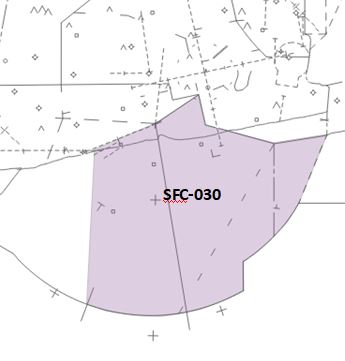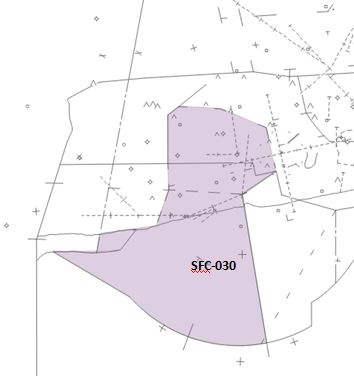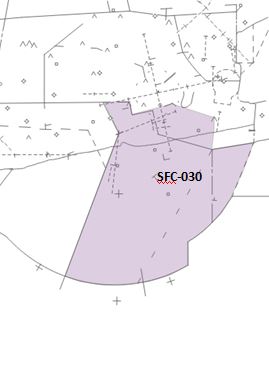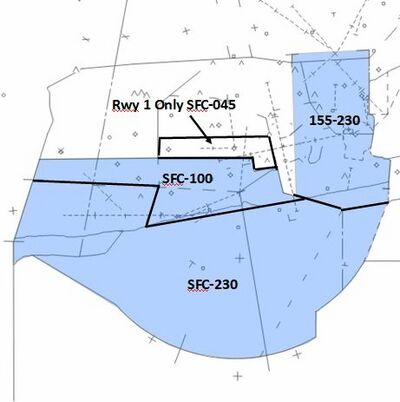Pensacola Tracon SOP: Difference between revisions
| Line 165: | Line 165: | ||
[[File:PNSF-ARNPA19.JPG|400px|thumb|left|NPA Runway 19 Configuration]] | [[File:PNSF-ARNPA19.JPG|400px|thumb|left|NPA Runway 19 Configuration]] | ||
[[File:PNSF-ARNPA25.JPG|400px|thumb|left|NPA Runway 25 Configuration]] | [[File:PNSF-ARNPA25.JPG|400px|thumb|left|NPA Runway 25 Configuration]] | ||
</tab> | |||
<tab name="A-AR Sectional"> | |||
[[File:PNSA-AR.JPG|400px|thumb|left|All Runway Operations]] | |||
</tab> | </tab> | ||
</tabs> | </tabs> | ||
Revision as of 19:16, 30 March 2024
Table of Updates
| Date | Revision | Items Revised |
|---|---|---|
| TBD | A | Initial Re-Release. Update Primary Sectors and Frequencies, Splits |
Area Information
| ICAO Code | Airport Name | Airspace | IFR Beacon Codes | VFR Beacon Codes |
|---|---|---|---|---|
| P31 | Pensacola Tracon |
Purpose:
This document prescribes the procedures to be utilized for providing air traffic control services at the Pensacola Tracon. The procedures described herein are supplemental to the Jacksonville ARTCC Facility Operating Guidelines and FAA Order JO 7110.65, as well as any published FAA guidelines or procedures.
Distribution:
This order is distributed to all Jacksonville ARTCC personnel.
Tracon Positions
| Position | Sector Name | Callsign | Symbol | Frequency |
|---|---|---|---|---|
| W-AR | Approach Radar W-AR | PNS_W_APP | 1W | 118.600 |
| P-AR | Approach Radar P-AR | PNS_P_APP | 1P | 118.00 |
| E-AR | Approach Radar E-AR | PNS_E_APP | 1E | 119.000 |
| D-DR | Departure Radar D-DR | PNS_D_APP | 1D | 127.350 |
| Z-AR | Approach Radar Z-AR | PNS_Z_APP | 1Z | 124.850 |
| S-AR | Approach Radar S-AR | PNS_S_APP | 1S | 120.050 |
| F-AR | Approach Radar F-AR | PNS_F_APP | 1F | 125.350 |
| A-AR | Approach Radar A-AR | PNS_A_APP | 1A | 120.650 |
| K-AR | Approach Radar K-AR | PNS_K_APP | 1K | 126.850 |
Sectorization Flow Chart
Description:
Localizer Split
This Split indicates that W-AR is being worked by P-AR. All P-AR airspace that is under W-AR airspace is under W-AR control; and all P-AR airspace that is under E-AR is under E-AR control.
Weekend Split
All P31 airspace is being divided in two sectors, normally E-AR and P-Ar. The airspace is divided independently on runway configuration.
Pensacola Bank
P_AR, E_AR, and W_AR positions are grouped together.
Sherman Bank
A_AR, F_AR, and S_AR positions are grouped together.
Whiting Bank
D_AR, K_AR and Z_AR positions are grouped together.
General Information
Handoffs: P31 shall complete any a radar handoff for arriving aircraft to tower. All other internal and external handoffs shall be initiated as soon as the aircraft are clear of conflict.
Departure Release: Unless otherwise coordinated, P31 shall give automatic departure releases to all traffic from PNS. All other airports within P31 shall request a departure release for traffic receiving radar services. Upon receipt of the departure release, the release shall remain valid for five (5) consecutive minutes. Upon issuance of the takeoff clearance, a rolling call notification message shall be sent to the appropriate F11 radar controller. This notification should include the callsign of the aircraft and the departure runway the aircraft is departing from.
Rolling Calls:PNS ATCT will ensure datatag auto acquires and will not send rolling calls to P31 departure controllers unless one of the following criteria is met:
a. The F11 departure controller requests rolling calls.
b. The departure scratchpads are not completed.
c. The departing aircraft is issued a departure heading not outlined in the PNS ATCT Standard Operating Procedures.
Runway Change Procedures: When changing runways, LC must verbally coordinate with the appropriate F11 position(s) for the last departure/arrival off the previously used runway and the first departure/arrival off the newly selected active runway(s). Notify P31 of the new runway configuration and last departure and arrivals. When notified by P31, stop all departures on the present configuration. When P31 is ready for the new configuration, F11 will notify LC. Upon completion of notification, departures may resume with the new configuration. Ensure ATIS has been updated to reflect the new configuration.
Approach Scratchpads: P31 uses a three letter format consisting of XYY where X identifies the type of approach and YY consists of the runway truncated to two characters. For example, Runway 18R would be 8R. Therefore, an ILS approach to Runway 18R would be represented by I8R.
Approach Radar
East Arrival will service arrivals and departures to PNS. Additionally, it will provide landing information and approach requests to satellites. It will also handle overflights.
West Arrival will service arrivals and departures to PNS. Additionally, it will provide landing information and approach requests to satellites. It will also handle overflights.
P Arrival will service arrivals sequencing to PNS. Additionally, it will provide landing information and approach requests to satellites. It will also handle overflights.
K Arrival will service arrivals sequencing to \North Whiting Field. In IFR conditions only, it will provide services and sequencing to both South and North Whiting Fields.
D Departure will service departures from North Whiting Field. It will also provide services and feed arrivals to the same field. Additionally, it will provide landing information and approach requests to satellites.
Z Arrival will services to and from South Whiting Field, Milton Airport, and Navy Outlying Fields under its airspace. Additionally, it will provide landing information and approach requests to satellites. It will also handle overflights.
F Arrival will sequencing for Pensacola Naval Air Station. Additionally, it will provide landing information and approach requests to satellites. It will also handle overflights.
A Arrival will service arrival and departures for Pensacola Naval Air Station. Additionally, it will provide landing information and approach requests to satellites. It will also handle overflights.
S Arrival will service arrival and departures for the Pensacola South MOAs (PNSS). Additionally, it will provide landing information and approach requests to satellites. It will also handle overflights.
